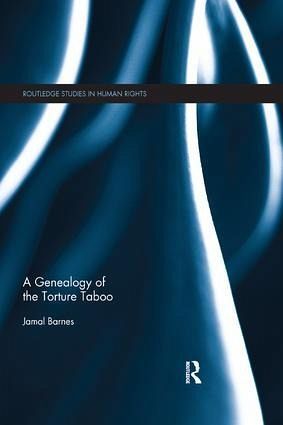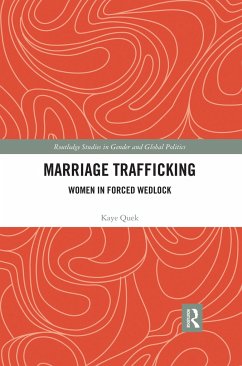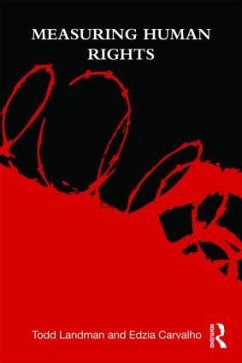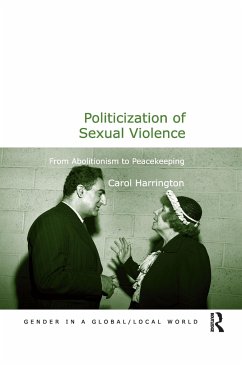
A Genealogy of the Torture Taboo
Versandkostenfrei!
Versandfertig in 1-2 Wochen
59,99 €
inkl. MwSt.
Weitere Ausgaben:

PAYBACK Punkte
30 °P sammeln!
This book examines the historical genealogy of the torture taboo. The dissonance between the absolute prohibition against torture and its widespread violation raises important questions about the torture taboo in world politics. Does the torture taboo matter? Or are political realists correct in arguing that power politics rules? Barnes argues that despite the torture taboo's violation, it still matters, and paradoxically, its strength can be seen by studying its violation. States hide, deny, re-define and outsource their torture, as well as torture without leaving marks to avoid being stigmat...
This book examines the historical genealogy of the torture taboo. The dissonance between the absolute prohibition against torture and its widespread violation raises important questions about the torture taboo in world politics. Does the torture taboo matter? Or are political realists correct in arguing that power politics rules? Barnes argues that despite the torture taboo's violation, it still matters, and paradoxically, its strength can be seen by studying its violation. States hide, deny, re-define and outsource their torture, as well as torture without leaving marks to avoid being stigmatised as a norm violating state. Tracing a genealogy of the torture taboo from the eighteenth to the twenty-first century Barnes shows how the taboo has developed over time, and how violations have played an important role in that development. Through six historical and contemporary case studies, it is argued that the taboo's humanitarian pressures do not cease when states violate the norm, but continue to shape actors in unexpected ways. Building upon the constructivist norm literature that has shown how norms shape state actions and interests, the book also widens our understanding of the complex role norm violations play in international society. Making a contribution to existing public debates on the use of torture in counter-terrorism policy, it will be of great use to scholars, postgraduates and practitioners in the fields of human rights, international relations theory (in particular constructivism), security studies and international law.














